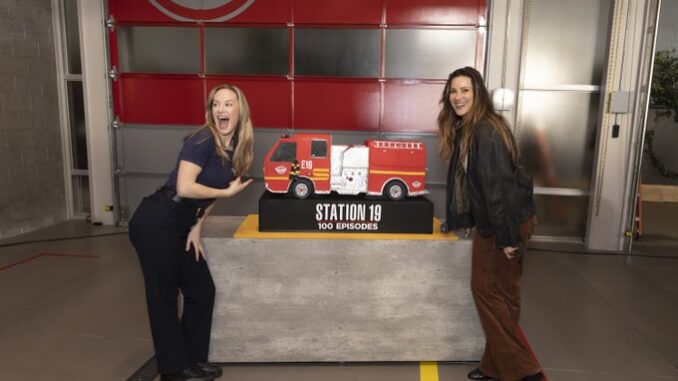
The very notion of a series finale carries a unique emotional weight. It's the moment a narrative journey, often spanning years, culminates, offering either the stark finality of an ending or the gentle promise of continuation beyond the screen. For Station 19, the final episode, "Starting Over," opted for the latter, delivering a masterclass in narrative closure through a series of poignant flashforwards. These glimpses into the future weren't just a convenient way to tie up loose ends; they served as a deeply satisfying affirmation of character growth, enduring legacy, and the indomitable spirit of a found family, offering viewers a balm to the soul after years of high-stakes drama.
The decision to utilize flashforwards was a deliberate and effective choice for a show like Station 19. Unlike an ambiguous fade-to-black, which might leave fans yearning for answers, these future scenes provided a comforting certainty. They weren't mere epilogues; they were narrative assurances that the resilience forged in the crucible of Station 19 – through fires, personal tragedies, and profound love – would continue to burn brightly. This approach allowed the finale to celebrate not just the end of an era, but the infinite possibilities of lives irrevocably shaped by their time in the firehouse.
At the heart of Station 19's future lies Andy Herrera, whose journey from ambitious lieutenant to a formidable leader has been the show's backbone. The flashforwards beautifully unfurl her destiny, confirming her ascent to Captain and, later, to the highest echelons as Seattle's Fire Chief. We see her, years down the line, her posture radiating an earned authority, imparting wisdom to a fresh class of recruits, a living embodiment of her father Pruitt's legacy. But it's more than just a career trajectory; it's the culmination of a deeply personal arc. Andy, once defined by her father's shadow and her complicated relationships, steps fully into her own light, becoming the very beacon of leadership she always strove to be. The scene where she takes a call from Vic Hughes, years in the future, subtly reinforces the enduring bonds that underpin their success, proving that while roles may change, the family remains.
Beyond the chief's office, the flashforwards paint a kaleidoscope of fulfilling futures for the ensemble. Vic Hughes, whose empathetic heart has always been her greatest strength, finds her true calling in expanding Crisis One, making it a nationwide force. Her infectious joy and unwavering commitment to mental health and community support are perfectly aligned with her character's evolution. Travis Montgomery, having navigated profound grief and self-discovery, steps into the political arena, leveraging his unique perspective as a first responder to advocate for systemic change. His partnership with Emmett Dixon, though a quieter note, speaks volumes about lasting love and shared purpose.
Ben Warren and Carina DeLuca, the unwavering emotional anchors of the show, finally achieve the family they so deeply desired. The future shows them surrounded by children – not just Pruitt Miller, but also biological additions, a testament to their perseverance through the fraught fertility journey. Ben's ultimate decision to return to medicine, not as a surgeon, but as an ER doctor, is a full-circle moment, merging his passion for saving lives with his innate compassion. It's a career shift that feels organic and earned, a quiet strength that resonates deeply. Maya Bishop, having faced her own demons and found peace, remains at the heart of the firehouse, a steadfast leader alongside Andy, their partnership a testament to growth and forgiveness. Even Jack Gibson, having overcome significant health challenges, is shown thriving, a quiet affirmation that life, even after profound trauma, can still offer joy and purpose.
Perhaps the most resonant aspect of these flashforwards is the implicit promise of continuity. The final images often involve new recruits, including Ben and Miranda's son, and Maya and Carina's daughter, hinting at a new generation stepping into the boots of their predecessors. This cyclical nature ensures that the spirit of Station 19, the camaraderie, the heroism, and the profound bonds of found family, will endure. It's a comforting thought: while the individual stories we followed for seven seasons may have reached their narrative conclusion, the legacy of Station 19, the lessons learned, and the lives impacted, will live on through those who carry the torch forward.
In essence, Station 19's finale was less about dramatic twists and more about emotional resonance. The flashforwards were an illustrative mosaic of hope and destiny, proving that the arduous journeys undertaken by these beloved characters were not in vain. They provided a deeply satisfying blend of closure and open-ended hope, reassuring viewers that the lives within those firehouse walls, though no longer unfolding weekly, were moving toward beautiful and purposeful futures. It was a finale that didn't just end a story; it affirmed a family, cemented a legacy, and left a warm, enduring ember in the hearts of its devoted audience.